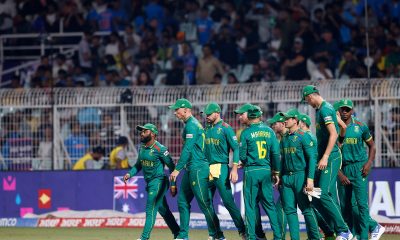
The Cricket World Cup proved to have a steep learning curve for the Proteas, but they shouldn’t be the only one to take lessons from the tournament.
In 2019, the Cricket World Cup dispelled a few preconceived notions about how the tournament would run while others were confirmed.
Before it got underway, there was a belief that the tournament would inevitably throw up a whole lot of dead rubbers because of the open round-robin format. Thankfully this wasn’t the case. There were a few games that were of little consequence but ultimately much fewer than expected. South Africa’s final match of the tournament was one of those supposed dead rubbers, but even that game proved to have some consequence. A Proteas victory derailed Australia’s bid to win a record sixth World Cup by matching them up with England for a semi-final they would lose.
Before the tournament began, it was announced that the ICC would oversee pitch preparation and many believed this would mean an endless stream of batsman’s paradises. The English weather had other ideas though, and the tournament provided an intriguing balance between bat and ball.
The notion that high-scoring games are more entertaining than matches with more modest strike-rates was dispelled as some of the event’s best games were low-scoring affairs.
The English weather came in for its fair share of criticism. However, barring not hosting the tournament on the island for the fifth time in twelve tournaments, there was little anyone could do about that.
A final that ended in farce is not something new to Cricket World Cup, the 2007 final ending in darkness comes to mind. The Super Over rules and tie-breaking methods are seemingly more imperfect than anyone could have imagined and weren’t helped by dodgy officiating. A freak deflection off Ben Stokes’ bat that raced to the fence saw England awarded six runs with three balls to go in the final over. The burly allrounder then managed to tie the scores at the end of regular play. Scores were again level in the resulting Super Over, and England won their first World Cup because they had hit more boundaries during the final. Former umpire Simon Taufel pointed out that England should only have been awarded five runs for the deflection. Cricket’s convoluted laws make it difficult, but the lesson is officials need to be briefed on as many scenarios as possible, to make sure the same mistakes are not repeated.
To be fair to the ICC foreseeing the events of the 2019 World Cup final would have taken some incredible powers of foresight and a wild imagination.
Some things were a little more obvious though; the ten-team format robbed the tournament of some of the charm brought to the party by associate members. The ICC’s belief that the Cricket World Cup should be a celebration of elite teams has as many supporters as it does detractors. The smallest tournament in terms of participating nations since 1992 didn’t provide a standard of cricket that would make it seem worth leaving the smaller cricketing nations out in the cold though.
The 2019 Cricket World Cup wasn’t the worst tournament ever, but it could have been better.
Written by James Richardson for Hollywoodbets.
























